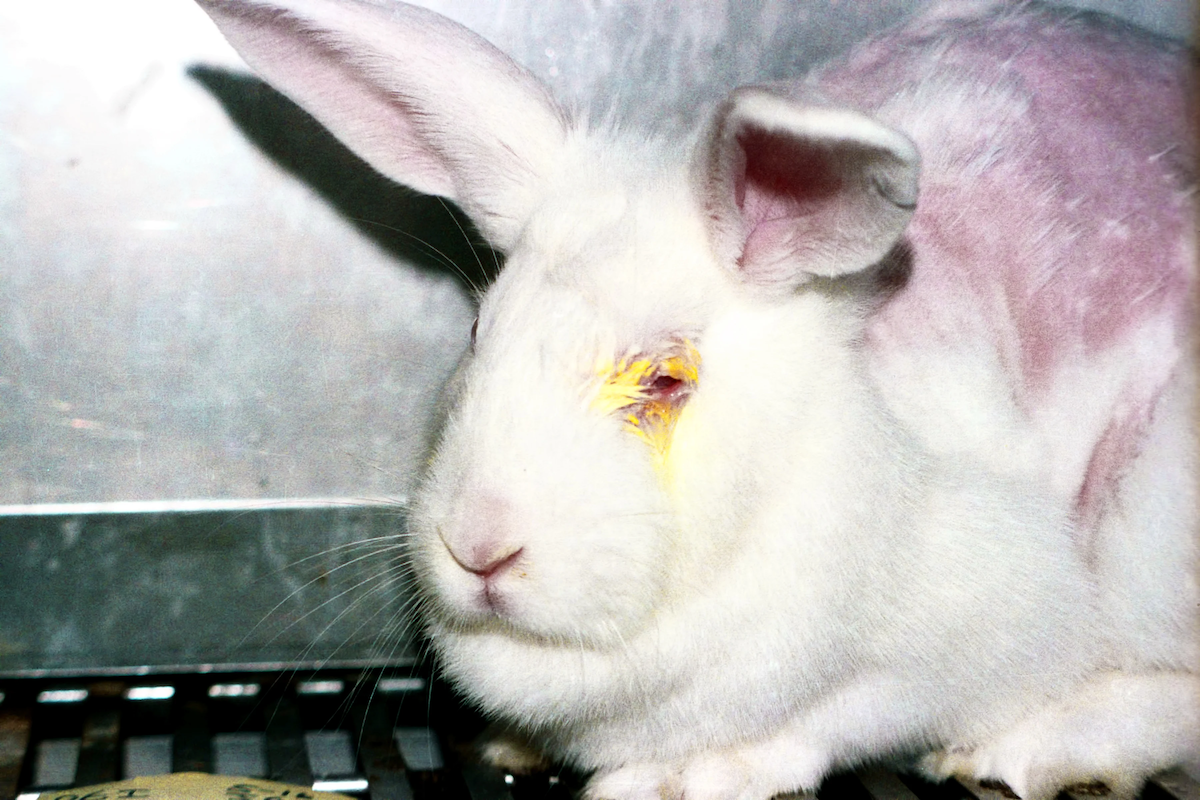Victory! Mandatory Animal Testing Scrapped by FDA Modernization Act 2.0
The groundbreaking decision will allow the use of alternative methods to investigate the safety and effectiveness of a new drug, ending a decades-old federal mandate that required animal testing.
This story is supported by
Photo: Amy Jones/Moving Animals
A landmark measure to reduce animal testing in the United States has been signed into law by President Joe Biden as part of the 2023 spending package. The FDA Modernization Act 2.0 will end a federal mandate that experimental drugs must be tested on animals before they are used on humans in clinical trials, which has been in effect since 1938.
The bill also includes a provision – the Reducing Animal Testing Act -- to eliminate a similar mandate for biosimilars regulated by the U.S. Public Health Service, according to Animal Wellness Action (AWA).
An estimated 75 percent of all animals used in testing are conscripted for drug development, according to AWA, highlighting the scope of this huge policy win for animals in laboratories.
“This is the biggest policy development in Congressional history in the quest to replace animal testing with morally and scientifically superior non-animal methods,” said Wayne Pacelle, president of Animal Wellness Action and the Center for a Humane Economy. “Lawmakers were persuaded by our campaign to scrap mandatory animal testing in favor of 21st-century testing methods grounded on human biology.”
The Senate and the House had independently approved the FDA Modernization Act in the preceding months. In September, Senators Rand Paul, R-Ky., and Cory Booker, D-N.J., won the unanimous support of their colleagues in passing S. 5002 as a stand-alone measure. S. 5002 also included Senator Ben Ray Lujan’s Reducing Animal Testing Act.
The U.S. House passed its FDA legislative package in June by a vote of 392-28. That measure, H.R. 7667, included the original version of the FDA Modernization Act, introduced in April 2021 as H.R. 2565 by Reps Vern Buchanan, R-Fla., and Elaine Luria, D-Virg. Other original cosponsors of H.R. 2565 were Reps. Mikie Sherrill, D-N.J., Nancy Mace, R-S.C., and Brendan Boyle D-Pa.
“The FDA Modernization Act 2.0 will accelerate innovation and get safer, more effective drugs to market more quickly by cutting red tape that is not supported by current science, and I’m proud to have led the charge with our fellow cosponsors. The passage of this bipartisan bill is a step toward ending the needless suffering and death of animal test subjects – which I’m glad both Republicans and Democrats can agree needs to end,” said Senator Paul, M.D.
More than 200 organizations, medical associations, biotech, and patient advocacy groups backed the legislation.
An Outdated Practice
Credit: PETA
Congress passed the U.S. Federal Food, Drug, and Cosmetic Act in 1938, mandating animal toxicity testing. In the decades since, science has warned that animal testing is not a reliable predictor of toxic responses in humans, with many non-animal, scientific alternative methods available.
More than 100 million animals including dogs, cats, monkeys, mice, and rats are subjected to painful tests in U.S. laboratories every year. After being deliberately abused, most of the animals are then euthanized. Methods include gassing, decapitation, breaking the animal’s spine, shooting, electrocution, and brain irradiation.
"The passing of the FDA Modernization Act marks a profound change in the way we treat and use animals in laboratory settings and drug development. This law will allow drug companies to pursue alternative technologies that will revolutionize the field and have a monumentally positive impact for animals and people,” said Dr. Jimmy Desmond, co-founder, Liberia Chimpanzee Rescue and Protection. “As a wildlife veterinarian who has worked closely with chimpanzees and other primates, the prospect that the use of these sentient beings in medical research will be dramatically reduced or eliminated is an astounding achievement and a long overdue development.”
It typically takes around 10 to 15 years and an average investment of $1 billion and up to $6 billion to develop a new drug, according to data. Moreover, animal tests are not reliable predictors of the human response to drugs. In addition to sacrificing millions of animals, this antiquated process of drug screening, dictated by the Federal Food, Drug and Cosmetics Act of 1938, slows the delivery of palliatives and cures for patients, drives up drug costs, makes it prohibitively expensive for drug developers to explore medical solutions for rare diseases, and sacrifices countless animals, according to AWA.
“New alternative methods, such as Organ-on-a-Chip technology, are not only more predictive than animal model testing but have the potential to improve global research and development productivity,” said Jim Corbett, CEO of Emulate, a biotech company specializing in human-based chip technology. “By increasing the accuracy at which we can predict the safety and efficacy of drugs, pharmaceutical companies are able to make critical decisions related to advancing a compound in the drug development process sooner, ultimately bringing the benefits of modern medicine to patients worldwide.”
Find out more on how campaigners are working to change the system and stop animal tests: listen to our podcast episode “Tax Payer Funded Torture” with Justin Goodman of The White Coat Waste Project here.
We Have A Favor To Ask…
Species Unite amplifies well-researched solutions to some of the most abusive animal industries operating today.
At this crucial moment, with worldwide momentum for change building, it’s vital we share these animal-free solutions with the world - and we need your help.
We’re a nonprofit, and so to keep sharing these solutions, we’re relying on you - with your support, we can continue our essential work in growing a powerful community of animal advocates this year.
More stories:
Species Unite
A collection of stories of those who fight the good fight on behalf of animals.






Evaluating drugs with cutting-edge technology instead of animal testing will improve drug safety and cut development times, the agency said as it reveals a roadmap to increase non-animal research techniques.